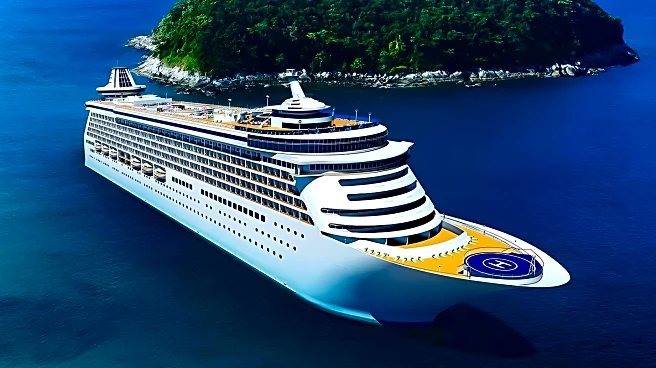What's Happening?
Luxury cruise lines such as Seabourn, Silversea Cruises, and Regent Seven Seas Cruises are distinguished from mass-market operators by their smaller ship sizes and more personalized services. According
to Ralph Bias, a luxury cruise specialist, these cruises typically accommodate between 400 and 600 guests, allowing for a higher crew-to-guest ratio and more personal service. Unlike larger ships, luxury cruises offer understated decor and spacious accommodations, with suites starting at 365 square feet, comparable to standard hotel rooms. These cruises also include more in their fares, such as alcoholic beverages, gratuities, and specialty dining, which are often additional costs on larger ships.
Why It's Important?
The luxury cruise market caters to travelers seeking a more intimate and personalized experience, which can significantly impact the cruise industry's dynamics. By offering more inclusive packages and personalized services, luxury cruise lines attract a clientele willing to pay a premium for comfort and exclusivity. This trend may influence mainstream operators to enhance their offerings to remain competitive. The focus on spacious accommodations and personalized service reflects a broader shift in consumer preferences towards quality and experience over quantity, potentially reshaping industry standards.
What's Next?
As luxury cruise lines continue to differentiate themselves, mainstream operators may respond by upgrading their services and amenities to attract discerning travelers. The competition could lead to innovations in cruise offerings, with potential impacts on pricing structures and marketing strategies. Additionally, the emphasis on personalized service and spacious accommodations may set new benchmarks for customer expectations in the travel industry, prompting other sectors to adapt similar approaches.
Beyond the Headlines
The rise of luxury cruises highlights a cultural shift towards valuing experiences and personalization in travel. This trend may influence other luxury sectors, such as hospitality and aviation, to prioritize customer experience and exclusivity. Ethical considerations regarding environmental impact and sustainability may also come to the forefront, as luxury operators seek to balance opulence with responsible practices.








